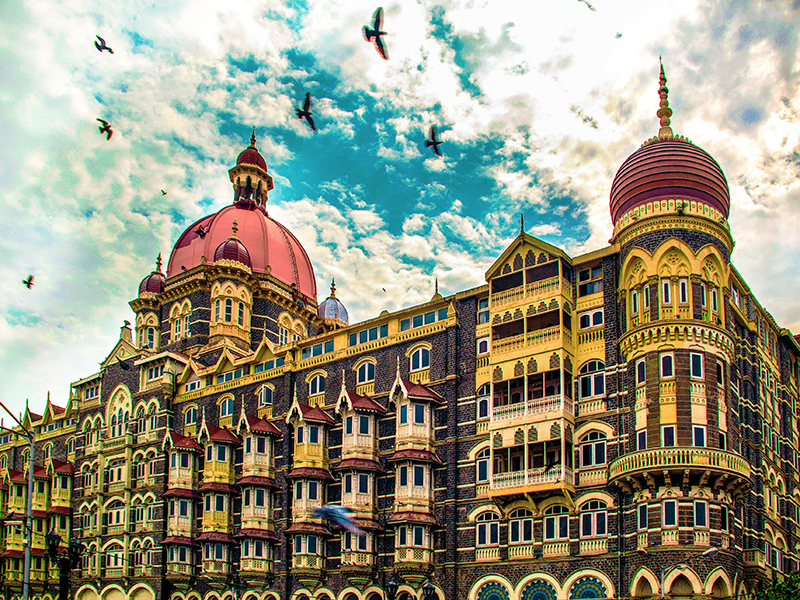Taj Hotels cannot yet check into Sea Rock even after a 11-year-old wait
Company asks shareholders to wait for two more years. Environment clearance, PIL and permission for direct access from below the Bandra-Worli Sea Link to Taj Lands End main irritants.
 Image: Shutterstock
Image: Shutterstock
When Indian Hotels Company Ltd acquired the Sea Rock Hotel in suburban Mumbai's Bandra area in mid-2009, it had a grand vision: to create a property as iconic as the Taj Mahal Palace, Colaba, the flagship property of the oldest hotel company.
IHCL sealed the deal for Rs 680 crore, three years before the retirement of Tata Group patriarch Ratan Tata. However, even a decade after razing the Sea Rock to the ground, it is now reassuring shareholders that a wait for another two years will be worth it.
Before explaining the reasons for the delay, a little bit of history is called for.
Making of the first five-star deluxe hotel
Standing proud on the extreme tip of land's end with a breath-taking view of the Arabian Sea, SeaRock was the first five-star deluxe hotel in a suburban area. The ownership of the hotel had changed many hands.
It original owners were the Luthria brothers – Girdharilal, Udharam, Shyam and Manohar. Refugees from Karachi, the four set up ELEL Hotels and Investment Limited (EHIL), which built Sea Rock.
Sea Rock opened in 1978 in collaboration with the Welcomegroup of the ITC chain. In the 1980s, it tied up with the prestigious Sheraton and was known as the Welcomegroup SeaRock Sheraton.
The ‘Sea Rock glory' started there, with its banquet hall, business centre and executive lounge giving it a tag of a business hotel. It was the favourite haunt of many film stars and airline crew, and then Bombay's pride, and all was well.
On March 12, 1993, its destiny changed. In a serial bomb blast that ripped apart Mumbai, parts of the hotel were damaged. Talks about its renovation plans led to a 14-year-old legal battle between EHIL and ITC Welcomgroup. The dispute was finally settled out of court.
In 2005, Suresh Nanda of Claridges Hotels and Resorts bought the property for Rs 300 crore. Finally, the Taj Group, owned by the Tatas, entered the scene. The Taj Group already had the Taj Lands End, across the road.
Hurdles are many
In April 2019, the Taj Group's plans hit a hurdle with the National Green Tribunal (NGT) staying all clearances, saying it violated Coastal Zone Regulations (CRZ).
The company is now trying to convince the state government for a direct access from below the Bandra-Worli Sea Link to the doorstep of the Taj Lands End to avoid a traffic bottleneck.
The combined inventory strength (Taj Lands End + new hotel on Sea Rock land) would be at least 1,000 rooms, multiple ballrooms, event spaces and convention centres.
If company officials are to be believed, the iconic Sea Rock will again rise against the Mumbai skyline soon.
Last month, speaking to analysts over a call, Giridhar Sanjeevi, Executive Vice President & CFO, IHCL, had said: “We believe that we will make significant headway in the next couple of months. Intrinsically, the government is supportive. Over the next couple of years, we do hope to make significant progress on these approvals. It has been a long and hard journey on this actually”.
Besides the environmental clearance certificate, IHCL is fighting a seven-year-old public interest litigation (PIL).
Recently, the IHCL board approved a management proposal to buy the remaining 14.28 percent stake in ELEL Hotels and Investments for Rs 250 crore.
It has to be paid in two years but not later than December 2021. This values the property at over Rs 1,666 crore, which is more than double the Rs 800-crore valuation it got in 2009.
On the same analyst call, Puneet Chhatwal, Managing Director & CEO, IHCL, had said: “We're very close to finding a solution, but the transaction value is so high that we have to be prudent in doing the right thing. And we have a lot of history on this one.”
The redevelopment could likely see the addition of more floors to the Taj Lands End itself as the Floor Space Index (FSI) granted to the property is not fully utilised by IHCL. Upon completion, the property could very likely become the single-biggest in India.
Chhatwal exudes hope: “We are almost coming to the end of it in terms of solving it”.
Original Source: https://www.moneycontrol.com/news/business/companies/after-an-11-year-wait-taj-hotels-to-wait-some-more-time-to-rebuild-sea-rock-5520581.html